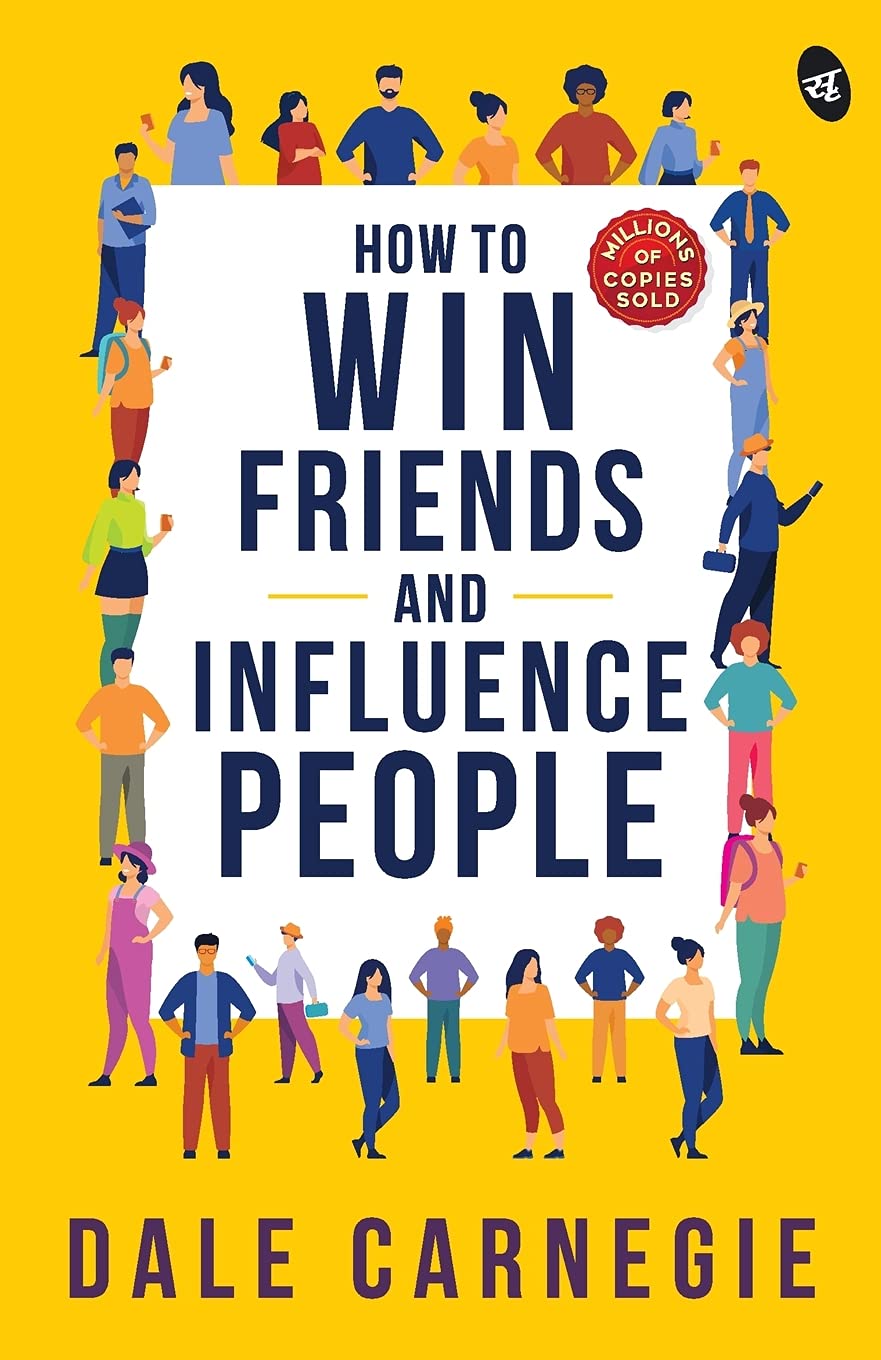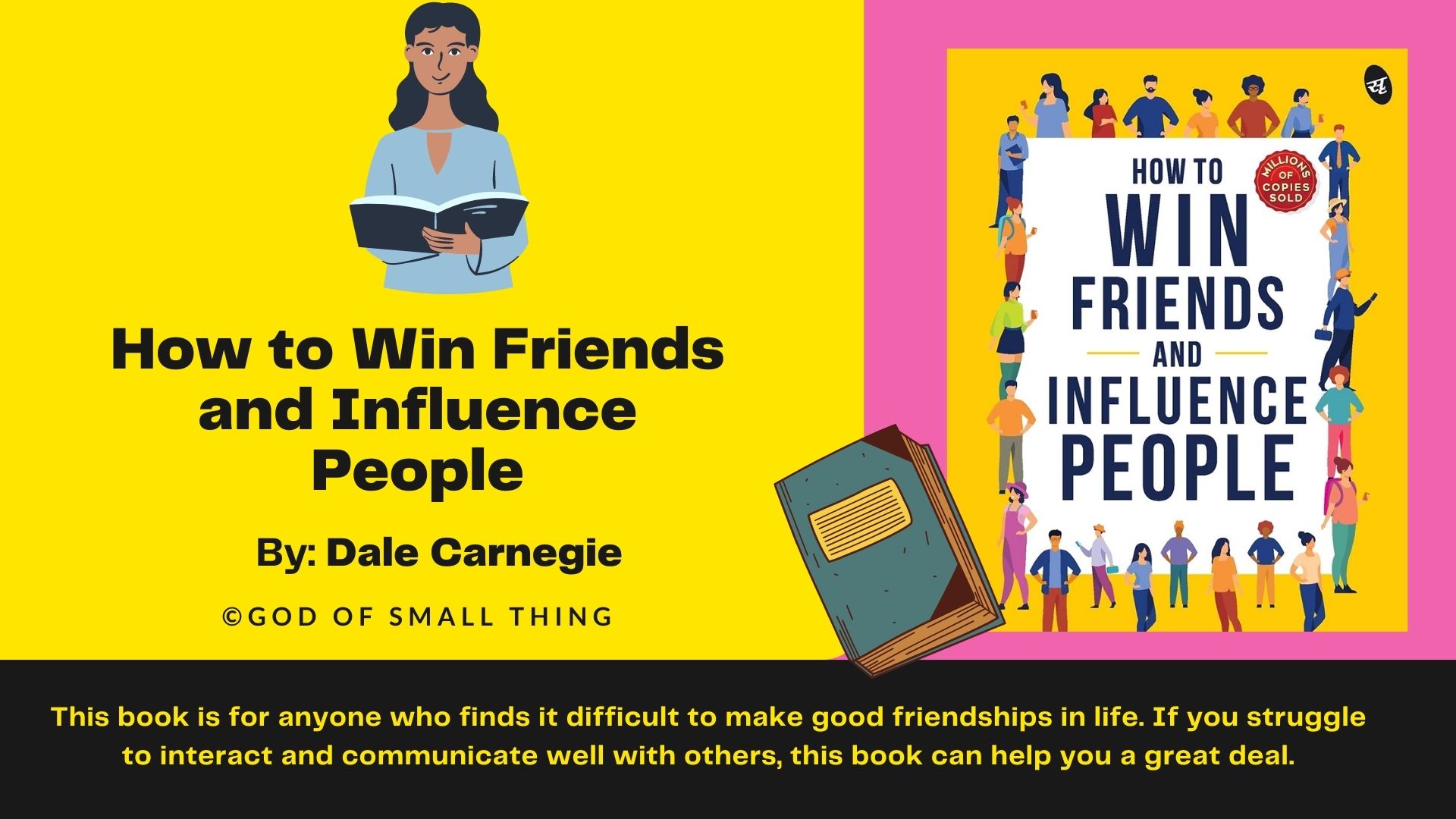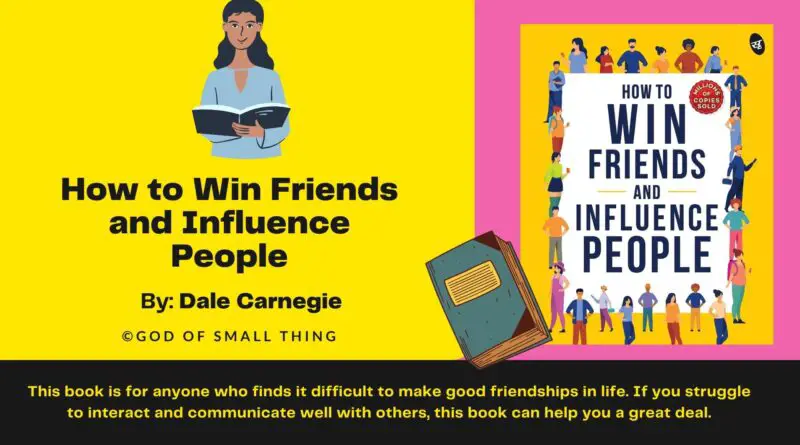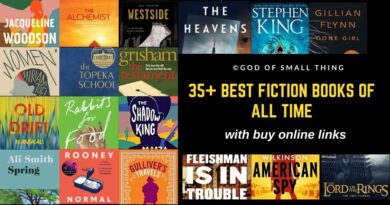How to Win Friends and Influence People Book Review: Dale Carnegie’s tried and tested formula to better human relations
A wise person once said, “Reading can seriously damage your ignorance.” Well, since I have no intention to keep my ignorance intact, I read books. I enjoyed reading as a child, ranging from storybooks, comics, newspapers, and if there was nothing else, even the dictionary! That was until I got a cell phone in my late teenage years. I drifted away slowly from books and got addicted to technology and its readily available solutions for almost everything. When my imagination needed an upgrade, I realized that I needed to go back to my old friends; books. Kind and generous as they are, they welcomed me back with open arms despite me ignoring them for all these years. So, I vowed, to read a total of 52 books in a year to make it up to them. And this is the book review for my eighth book. Head over to our Book Reviews by God of Small Thing for more book reviews: Book Reviews by God of Small Thing
Table of Contents
How I came across the book, How to Win Friends and Influence People

I owe gratitude to my school years, for introducing me to a lot of good books. In our tenth-grade English text, there was a chapter that dealt with making good friendships. I’ll be completely honest with you, despite a good explanation by our teacher, I didn’t understand anything said in that chapter. I just noted what was written in the end. It said, ‘This excerpt is taken from the book How to Win Friends and Influence People by Dale Carnegie.’ The name of the book caught my attention.
Now, in high school, I had a lot of friends. So, I thought there was no need for me to read this book. But as years passed, I realized that making friends is not as easy as it was in school. In school, things were different. Most of your friendships formed when you were in kindergarten or primary school, and at that age, you don’t need a technique to form them. But when you grow up, knowing how to speak with people and to influence them into your way of thinking, is a very pivotal skill to success, irrespective of the field. Realizing the significance of the book, I bought it last year. And I’m glad that I did.
How to Win Friends and Influence People Review:

As an introvert, I’ve had my struggle while talking in public and with strangers. I find making new friends intimidating, and very often, I find myself rummaging for the right words while in between a conversation. How to Win Friends and Influence People is an excellent book to learn how to speak effectively. This one is again one of those examples where a book defies the limitations of time to come of service to the people who need it. Written in 1937, it has come of great use to me about a century later.
We, humans, are social creatures. Unless you’re a hermit or sage, you know why social interactions are necessary. No matter how much we deny it, we are somewhat dependent on the society around us. So, it is necessary to have at least a few good friends in life. Now, when you do find people worthy of becoming friends, why just restrict it to acquaintances? If you know how to influence people and earn their trust, you can end up making meaningful friendships with most. And if you’re someone who tries hard at it, but fails nevertheless, then just give this book a read. You’ll find all the answers you’re looking for here.
The best features of How to Win Friends and Influence People, according to me
If I were to give you a How to Win Friends and Influence People summary, these are the points I think that deserve to be highlighted:
The importance of knowing how to talk with others
We all learn Math and Geography and various sciences and World History as essential subjects in school. But how many of these things come of use in real life later? Hardly any. On the other hand, one skill that every adult will need at some point in their life is the skill to communicate and behave well with different kinds of people whom we meet in our life span. Whether they teach it at school or not, I suggest that everyone get this little guide of a book if you wish to master that skill. Because in this particular area, there can’t be a better teacher than Dale Carnegie.
A classic example of ‘Practice what you preach’
There’s this little portion at the end of the book, which is taken from Dale Carnegie’s biography. In that text, we learn that Carnegie himself struggled a lot in public speaking and communicating well with others. But he was determined to excel. He worked hard, discovered techniques, experimented with them, and kept on practicing them until he became an icon in the field. He then reached out to the masses to help them. I don’t know what’s more inspiring than that. To know that Carnegie, the pioneer of public speaking, was once an amateur like me gives me hope in my effort to master public speaking.
A brilliant way to deliver wisdom
The book doesn’t preach, unlike most self-help books. Carnegie uses a different approach as he says in one of the chapters; he doesn’t order, rather he makes that realization come from within you. And that’s a hundred times more effective when it comes to applying a principle practically. It’s not easy to direct your audience in that manner, and that is a display of his genius.
Provides an insight to human psychology
If you observe closely, this book is not just helpful for improving your communication. The author has done a great deal of research on human psychology to innovate the techniques mentioned in the book. In a time where there is a risk of more and more people falling victim to a wide range of psychological distresses, this book can act as an antidote to that. Because, by applying these principles, you’re assured of healthy and secure relationships with others. And we all know, that when we hold grudges with others, it indirectly harms our peace of mind. So, the other way around is also true, right? Additionally, it is a great relief to have good friends by your side when life hits you with unexpected blows.
And it’s not like you don’t already know the facts mentioned in this book. For example, we all know that resorting to anger to get something done from someone else is downright stupid. Because, firstly, you’ll never get that thing done with the kind of commitment you expect from the person. Secondly, if at all they had any respect or admiration for you, that’ll be lost. And thirdly, getting angry will affect you physically and mentally in a negative manner. But do most of us still do that? We do. This book acts as a reminder about these little things that we ignore. Not just any reminder, but a very unique one, indeed. Like Carnegie himself explains in one of the chapters, a dramatic approach is used in this book which will stay in your head longer and better.
Experimenting is the key to success
In one of the chapters, the author tells you that each of these techniques doesn’t need to work in every situation and for every person. The techniques, as I said before, are based on human psychology. So, they work 90% of the time. And it is also true that most people fail in their personal lives by not practicing them, whether as Carnegie’s instructions or as human relationship advice in general. So, why not try them out? The book openly admits that experimenting is the key to success. It encourages you to experiment with the techniques listed out. To find out for yourself if it works or not.
Giving praise doesn’t imply flattery
The author mentions in multiple places whether why using good, encouraging and appreciative words is key to effective communication. However, giving praise does not imply flattering the other person. The author reminds his readers that he is strictly against flattery. Most people use false praise to earn the approval of others. The book encourages you to give honest and sincere appreciation to the people in your life. Everyone has both virtues and vices. To help them get rid of their vices, encourage and appreciate their virtues. Flattery is dishonest. The author reminds us that by being dishonest to someone, you can never do them any good.
An opportunity to learn from the lives of hundreds
Some self-help books use fiction to convey their message, and I have felt that it is a brilliant way to deliver. Here, instead, the author uses the real-life examples of hundreds of people to illustrate his point. He gives you the actual names of people, from where they were or what job were they at, when they faced a certain situation. He then tells you how they tried and tested the said method to deal with that situation. Many among these people were famous icons at the time, while the others were those whom the author knew personally, as his friends, colleagues, or students. So, he proves to you that these principles stay true for people from all walks of life.
The wisdom of the book is in fact, confined to a mere 20% of its volume. The remaining 80% talks about the raw and fresh experiences of people like you and me, who applied the principle and got something out of it. In short, you get to watch their lives in a single glance. Now, this is amazing, because, there’d be only a few many people you’ll meet in your life from whose experiences you can learn something for yourself. Here, you have that golden opportunity in the comfort of your home!
Some How to Win Friends and Influence People quotes that I found most appealing
“When dealing with people, let us remember that we are not dealing with creatures of logic. We are dealing with creatures of emotion, creatures bristling with prejudices and motivated by pride and vanity.”
“Any fool can try to defend his or her mistakes – and most fools do – but it raises one above the herd and gives one a feeling of nobility and exultation to admit one’s mistakes.”
“Resentment caused by a brash order may last a long time – even if the order was given to correct a bad situation.”
“Remember that the people you are talking to are a hundred times more interested in themselves and their wants and problems than they are in you and your problems.”
“If you and I will inspire the people with whom we come in contact to a realization of the hidden treasures they possess, we can do far more than change people. We can literally transform them.”
“Nothing will work in all cases – and nothing will work with all people. If you are satisfied with the results, you are now getting, why change? If you are not satisfied, why not experiment?”
Genre, style and narrative of How to Win Friends and Influence People
The genre of this book, as you might have guessed, is self-help and motivation. The book is divided into three sections that each deal with separate skills in communicating and interacting with people. Talking about the style, it would be correct to state that this book is written in a combination of expository and persuasive styles. This is because the author imparts information on communication skills to a wide audience using facts. However, he does express his own opinions to persuade the audience with justifications and reasoning. Coming to the narrative, the author is the narrator of the book, i.e., it is in the third person omniscient narrative. How to Win Friends and Influence People is one of the best self-help books ever written. It is a must-read for everyone alike.

Dale Carnegie is one of the most renowned self-help authors of all time. In this very book, How to Win Friends and Influence People, there is a little chapter in the end about Carnegie. It is an excerpt taken from Dale Carnegie’s biography written in 1936, by Lowell Thomas, the famous American writer, and actor.
Carnegie’s childhood was one of poverty and misery. He struggled for education and did several menial jobs as a young man to make ends meet. While in college, he got interested in speaking contests. He met with defeat every single time he tried to speak in public. But he never gave up. He practiced his speeches while toiling on farms after college. Then, after a series of failures, one sudden day, he started to win. And the winning never stopped. Soon, others started requesting him to train them. And fortunately for us, that training session continues even today through the medium of the books that he left behind.
Some other Dale Carnegie books that people all across the world love include:
- How to enjoy your life and your job
- How to stop worrying and start living
- The quick and easy way to effective speaking
- How to develop self-confidence and influence people by public speaking
- Lincoln the unknown
How much would I rate How to Win Friends and Influence People
It might seem that good books are the easiest to rate, but it’s the other way round. There are so many assets that it has and you have to determine the value of all of them by a single number. Yet, if it’ll come of help to others, it’s worth it. I would rate How to Win Friends and Influence People with a 9/10.
Where to get How to Win Friends and Influence People
In case you’re wondering how to get hold of this amazing book, then worry not! For your convenience, we have included the link to buy How to Win Friends and Influence People’s latest edition below.
For whom is this book for?
This book is for anyone who finds it difficult to make good friendships in life. If you struggle to interact and communicate well with others, this book can help you a great deal. And I’m saying that from personal experience. I have applied a few of the techniques from the book in my life, and I must admit, they worked wonders. It helped me mend some friendships which were losing sync because of silly reasons. I argue less now, and try to be more tolerant when a problem arises in my life. Like Carnegie says, just don’t read the book. Revisit it frequently, and pick from the several techniques as and when an opportunity comes to try them out. Practice them. And sit back and marvel at the results!
Note-Our writer Anjali Kesavan has taken 52 weeks Reading challenge, so we will be publishing book reviews for all the readers out there! -Team Godofsmallthing. You can also check out some more book recommendations from our end like and hey! Each link will open in a new tab so you don’t have to miss out on reading this review 🙂




